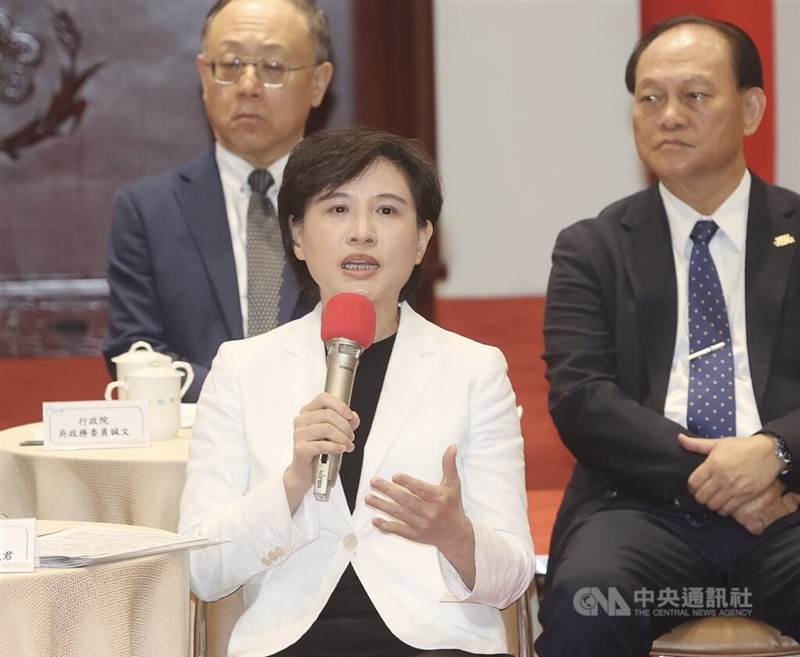
Taipei, May 16 (CNA) Taiwan's top trade negotiator Yang Jen-ni (楊珍妮) met with U.S. Trade Representative Jamieson Greer in South Korea on Thursday, according to Vice Premier Cheng Li-chiun (鄭麗君), but she did not provide details on what specifically was discussed.
Cheng said Friday in Taipei that Yang and Greer met on the sidelines of the APEC trade ministers' meeting in Jeju, and simply noted that the two hoped to hold another round of negotiations on tariffs in the future.
The encounter was the first between the two sides since Taiwan met twice with the United States to discuss tariffs in April, the first via videoconference on April 11 and the second in person at the end of the month.
Cheng and Yang led the Taiwanese delegation at the second meeting.
Describing the talks in April as "constructive," Cheng said they covered tariffs, non-tariff barriers and economic security, and that the two sides were willing to reinforce bilateral trade and economic cooperation based on mutual benefits.
The talks were held following U.S. President Donald Trump's chaotic rollout in early April of what he called "reciprocal" tariffs on trading partners that targeted countries with large trade surpluses with the U.S.
Goods from Taiwan, for example, were hit with a 32 percent import duty.
A week later, however, Trump announced a 90-day pause on the higher punitive rates to allow negotiations with various countries for lower rates while assessing a 10 percent duty against most economies.
Though some countries have pushed back against Trump's tactics, Taiwan has offered little overt resistance.
President Lai Ching-te (賴清德) has said Taiwan has no intention of launching retaliatory measures and hoped to move toward a "zero tariff" arrangement with the U.S. modeled on the United States-Mexico-Canada Agreement (USMCA).
Cheng said Friday that Taiwan's only goal in the trade negotiations is to lower tariffs and turn risks into opportunities to advance local industrial development.
In terms of a possible tariff threatened by Trump on semiconductors and other products under Section 232 of the U.S. Trade Expansion Act of 1962, Cheng said Taiwan has given opinions to Washington on the levy.
She said that if a tariff were imposed on Taiwan's semiconductors, Taiwanese manufacturers would slow down their investments in the U.S. market, which could interrupt semiconductor supplies.
Trump has repeatedly claimed Taiwan "stole" the chip industry from the U.S., and threatened to impose a tariff of up to 100 percent on semiconductors made in Taiwan.
In 2024, Taiwan had a trade surplus with the United States of US$73.9 billion, rising sharply from US$47.8 billion in 2023, largely due to increased shipments of artificial intelligence-related products, such as chips and servers.
- Cross-Strait
Taiwan 'welcomes' transit of Australia, Canadian warships in Taiwan Strait
09/08/2025 09:44 PM - Business
Semiconductor equipment billings to double this year: SEMI
09/08/2025 09:29 PM - Politics
Alliance with TPP remains unchanged after Ko's release: KMT lawmakers
09/08/2025 08:57 PM - Society
Sleeping pill use among Taiwanese youth doubled from 2014 to 2018
09/08/2025 08:16 PM - Society
MOL reviewing Lai's proposal to extend live-in helper eligibility
09/08/2025 07:52 PM